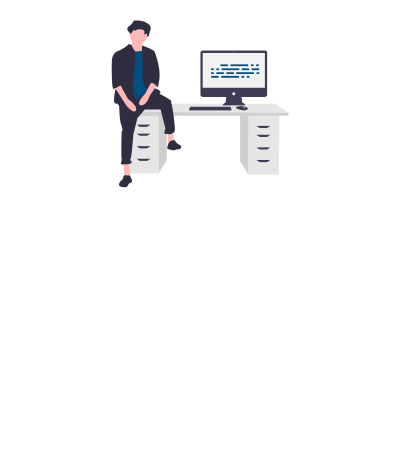Python has become the go-to language for beginners and experts alike.
From web development to data science, automation to AI, its versatility makes it the perfect choice for those looking to break into tech or level up their programming skills.
But learning Python doesn’t have to be a long, drawn-out process. With the right focus, resources, and strategy, you can gain a solid foundation in Python in just two weeks.
In this comprehensive guide, we’ll break down Python into manageable chunks, providing you with a clear roadmap to mastery in just two weeks.
We’ll cover the essential Python concepts, provide practical exercises, and offer valuable tips for accelerated learning.
Why Learn Python?
Python is more than just a programming language; it’s a gateway to endless possibilities in today’s tech-driven world. Here’s why Python stands out:
- Beginner-Friendly: Python’s simple syntax makes it easy to learn, even for non-programmers.
- Versatile: From web development to data science, Python is used across diverse fields.
- Strong Community Support: Access abundant free resources, libraries, and tutorials.
- High Demand: Python skills are highly valued across tech and data-driven industries.
- Scalable and Industry-Approved: Trusted by top companies like Google, Netflix, and NASA
Before jumping into our two-week Python journey, it’s important to set clear goals and establish a disciplined routine.
Focus on consistency, practice daily, and don’t hesitate to revisit concepts as needed.
With the right mindset and determination, this crash course will provide you with a solid Python foundation in just 14 days.
Let’s get started!
The 2-Week Crash Course
Week 1
Day 1: Getting Started with Python
- Install Python and set up your development environment (VS Code, PyCharm, or Jupyter Notebook).
- Learn Python basics: data types (integers, floats, strings), variables, and comments.
- Task: Write a simple program to display “Hello, World!” and perform basic arithmetic operations.
Day 2: Control Flow and Conditionals
- Learn about if, else, and elif statements.
- Understand boolean logic and comparison operators.
- Task: Create a program that checks if a number is positive, negative, or zero.
Day 3: Loops and Iteration
- Master for loops and while loops.
- Learn about range() and break/continue statements.
- Task: Write a program that prints the first 10 Fibonacci numbers.
Day 4: Functions and Modular Code
- Learn to define and call functions.
- Understand parameters, arguments, and return values.
- Task: Create a function that takes two numbers and returns their sum, difference, product, and quotient.
Day 5: Lists, Tuples, and Dictionaries
- Explore lists, tuples, and dictionaries—how to create, access, and manipulate them.
- Learn about list comprehensions.
- Task: Build a simple student management system that stores and displays student information.
Week 2
Day 6: Working with Strings
- Learn string methods, slicing, and formatting.
- Understand how to handle and manipulate text data.
- Task: Create a program that counts the occurrences of each word in a sentence.
Day 7: File Handling
- Learn how to read from and write to files in Python.
- Understand file modes and exceptions.
- Task: Write a program that reads a text file, processes it, and writes the output to a new file.
Day 8: Error Handling and Exceptions
- Understand try, except, and finally blocks.
- Learn how to handle exceptions gracefully and avoid crashes.
- Task: Create a program that safely divides two numbers and handles errors like division by zero.
Day 9: Object-Oriented Programming (OOP) Basics
- Introduction to classes, objects, methods, and inheritance.
- Understand the concept of encapsulation and constructors.
- Task: Create a class for a simple bank account with deposit, withdraw, and balance inquiry methods.
Day 10: Final Project – Bringing It All Together
- Combine everything learned in a mini-project.
- Project Idea: Build a simple command-line to-do list application where users can add, view, and delete tasks.
Learning Python in just two weeks is absolutely possible, but it requires discipline, focus, and consistency.
The key is sticking to a plan and practicing every day. With determination and the right guidance, you can build a solid foundation in Python faster than you think.
At UpskillCamp, we understand that staying disciplined can be challenging.
That’s why our Mentorship Program is designed to keep you on track with structured guidance, accountability, and expert support.
Our mentors will ensure you stay focused, tackle challenges, and make steady progress toward mastering Python.
Ready to commit to your growth?
Join UpskillCamp today and unlock your potential with the power of mentorship and a community that’s invested in your success!



